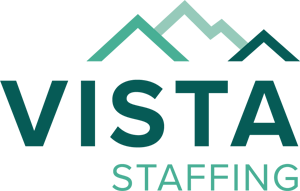
Opportunities for CRNAs Are Expanding Across the Country
With a shortage of nearly 13,000 anesthesiologists predicted by 2033, many hospitals and health systems are turning to certified registered nurse anesthetists (CRNAs) to continue to provide high-quality anesthesia care.
There are nearly 60,000 CRNAs in practice in the United States. They are making the most significant impact on care in rural areas, where they account for more than 80 percent of anesthesia providers. While salaries can vary based on location, experience and other factors, CRNAs are among the highest paid in nursing. It’s no wonder that employment for these highly skilled nurse anesthesiologists is expected to grow by 38 percent over the next nine years—a rate higher than many other professions.
Thanks to the growing need for specialized anesthesia services in underserved areas, a career as a CRNA offers stability and financial independence.
The Scope of Practice for a CRNA
As advanced practice registered nurses, CRNAs are licensed independent practitioners who administer anesthesia and pain management services to patients of all ages. Because healthcare and the practice of medicine continually evolve to meet the changing needs and acuity of patients, so too does the scope of practice for a CRNA.
A CRNA’s “scope of practice” reflects a broad range of industry standards practices rather than a detailed list of services. What actions are considered within a CRNA’s scope is determined by several factors, including:
- The accredited education the provider has completed
- The formal evaluation of credentialing organizations
- The evolving dynamics of clinical practice
In all cases, CRNAs are expected to exercise their professional judgment and be accountable for their actions. To do this, CRNAs partner with their patients and the rest of the healthcare team to deliver patient-centric, evidence-based and cost-effective care. Services include anesthesia-related care for surgical, diagnostic and therapeutic procedures in specialties ranging from obstetrics, dentistry and trauma to cardiology, orthopedics and gastroenterology.
The primary categories of care delivered by CRNAs are:
- Preoperative/Preprocedural Care
- Intraoperative/Intraprocedural Care
- Postoperative/Postprocedural Care
- Pain Management
The Varying Degrees of Independence
The scope of a nurse anesthesiologist’s practice is determined by his or her experience, education and local, state and federal laws. While CRNAs practice in urban and suburban communities, they are often the only anesthesia providers caring for military and medically underserved populations. In fact, according to the American Association of Nurse Anesthesiology, they are the sole anesthesia providers in approximately one-third of all U.S. hospitals and more than two-thirds of rural hospitals.
In 2001, the federal government amended the anesthesia Medicare and Medicaid Conditions of Participation for hospitals, critical access hospitals and ambulatory surgical centers. While the rule upheld the physician supervision requirement for nurse anesthetists, it allows state governors to “opt out” of this requirement under certain circumstances.
As of June 2024, the following states have fully opted out of the physician supervision requirement:
- Alaska
- Arizona
- Arkansas
- California
- Colorado
- Delaware
- Idaho
- Iowa
- Kansas
- Kentucky
- Massachusetts
- Michigan
- Minnesota
- Montana
- Nebraska
- New Hampshire
- New Jersey
- New Mexico
- North Dakota
- Oklahoma
- Oregon
- South Dakota
- Vermont
- Washington
- Washington, D.C.
- Wisconsin
In addition, Utah opted out in February 2022, but only in critical access hospitals and certain rural hospitals. Wyoming opted out in May 2023, but only critical access hospitals and hospitals with 25 licensed beds or fewer.

A Modern Model for Modern Medicine
VitalSolution-Anesthesiology recognizes the value CRNAs bring to the healthcare team. Our model enables skilled nurse anesthesiologists to balance work and life commitments through block scheduling and longer-than-average 1099 hospital engagements. This provides an autonomous work environment and opportunities to hone your skills and advance professionally while enjoying the benefits and stability of steady employment.
Our $25,000 annual quality incentive rewards select CRNAs for exceptional clinical performance, while our stakeholder incentive program allows providers to share in VitalSolution’s continued growth and success. This program offers eligible CRNAs a significant wealth creation opportunity above their competitive contracted compensation.
Discover Rewarding Career Opportunities as a CRNA with VitalSolution
From general anesthesia and pain management to complex pre-, intra- and post-procedural care, CRNAs are key care providers in communities large and small.
If you are a CRNA looking for a new opportunity, we invite you to learn more about a career with Vital Solution-Anesthesiology.
 company
company 
 (866) 755-7519
(866) 755-7519











